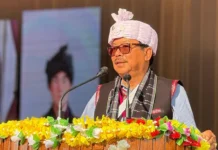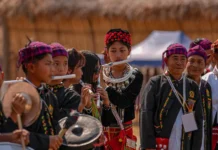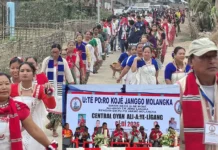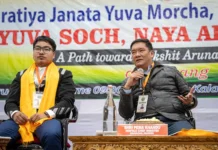NEW DELHI, 29 Apr: The Arunachal Olympic Association (AOA) on Sunday urged the Indian Olympic Association (IOA) to intervene and take up with the appropriate authorities the issue of China issuing stapled visas to the people of Arunachal Pradesh, which is depriving the athletes of the state from participating in sports events held in that country.
In a representation to IOA president PT Usha, AOA secretary-general Bamang Tago urged her to take up the vexed issue with the International Olympic Committee (IOC), the Asian Olympic Committee, the union foreign affairs ministry, the external affairs ministry, and the prime minister’s office.
Tago stated in the representation that the practice of issuing stapled visas instead of regular visas by the Chinese embassy to Indian citizens from Arunachal started in 1981. “However, China does not apply this policy to residents of other Indian states,” he said.
He said that China is becoming an important destination for international sports events and will continue to be so in the future too. “In such a scenario, sportspersons from Arunachal will continue to be deprived of participating in such events for no fault of theirs,” he said.
Tago apprised the IOA president of the sportspersons and others from Arunachal who are unable to travel to China due to stapled visas issued to them by that country as India does not accept stapled visas as valid.
Tago said that Article 2 of the Universal Declaration of Human Rights, 1948, states: “Everyone is entitled to all the rights and freedoms set forth in this declaration, without distinction of any kind, such as race, colour, sex, language, religion, political, or other opinion, national or social origin, property, birth, or other status. Furthermore, no distinction shall be made based on the political, jurisdictional, or international status of the country or territory to which a person belongs, whether it be independent, trust, non-self-governing, or under any other limitation of sovereignty.”
The AOA secretary-general said that time has come to resolve the issue “thoughtfully and imaginatively through the confidence-building measures signed between the two countries in 1993, 1996, and in 2005.”




